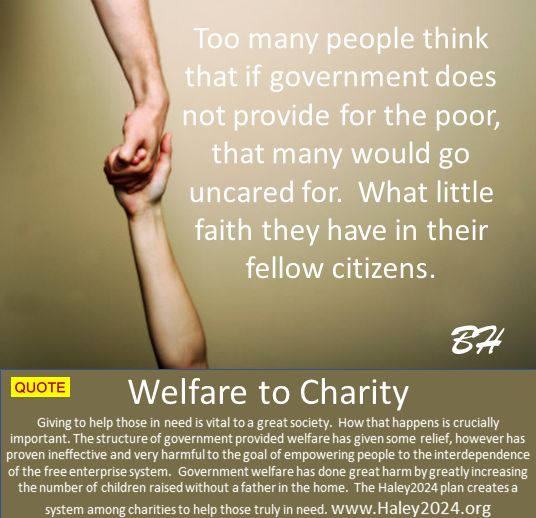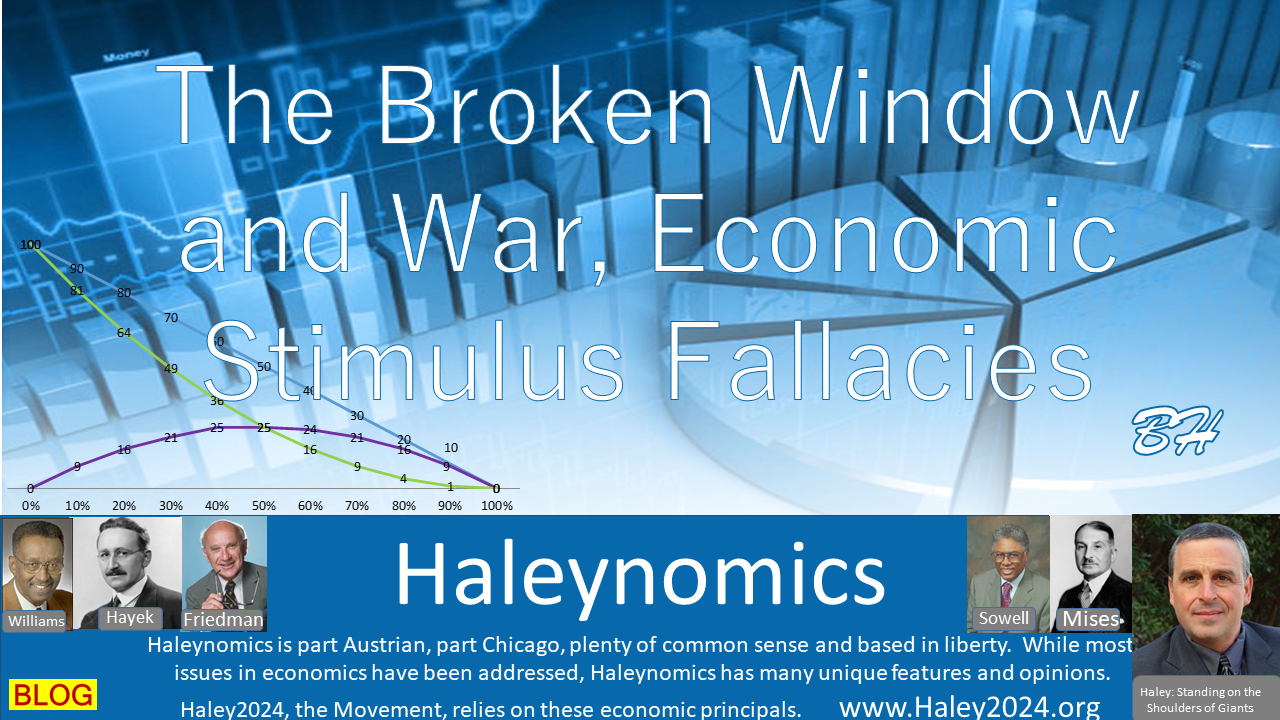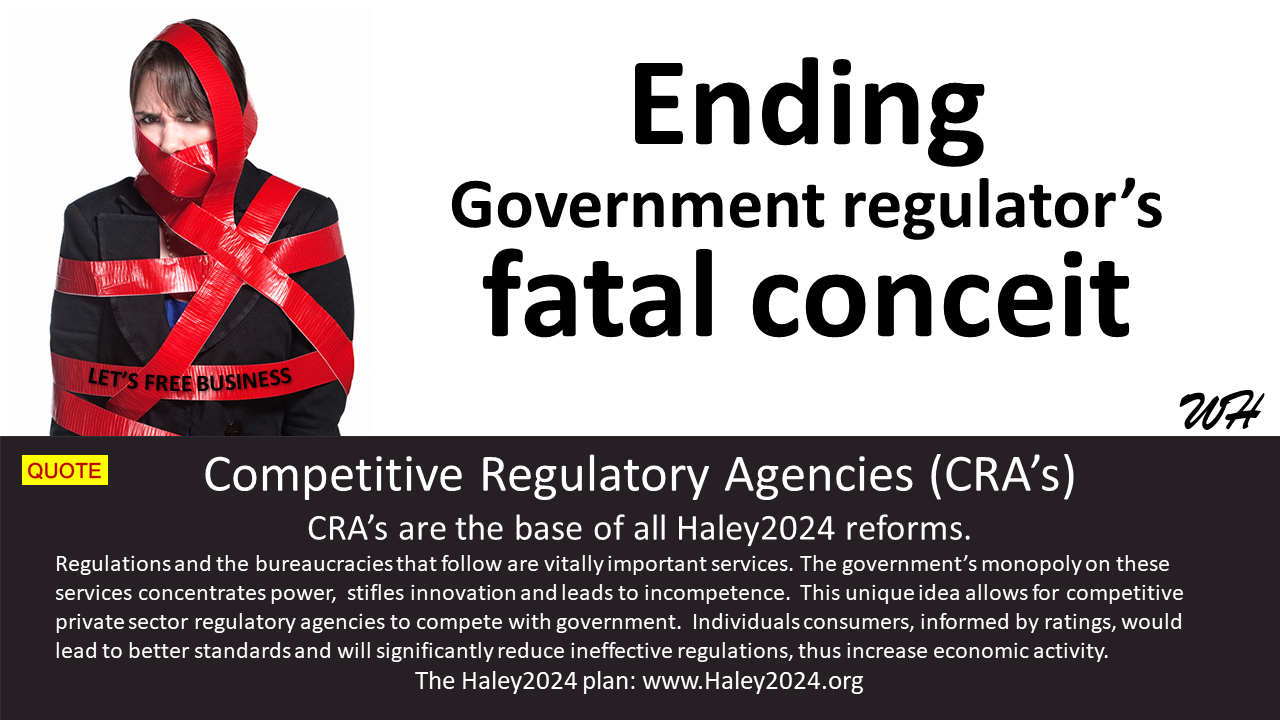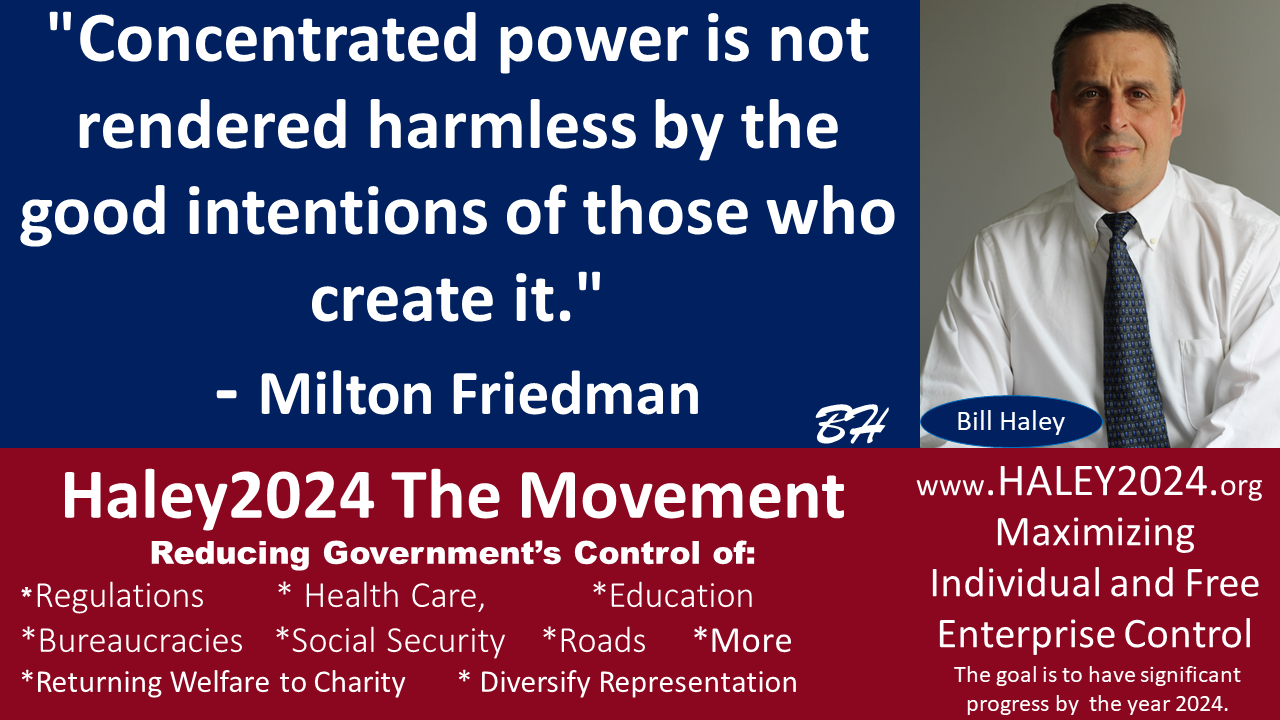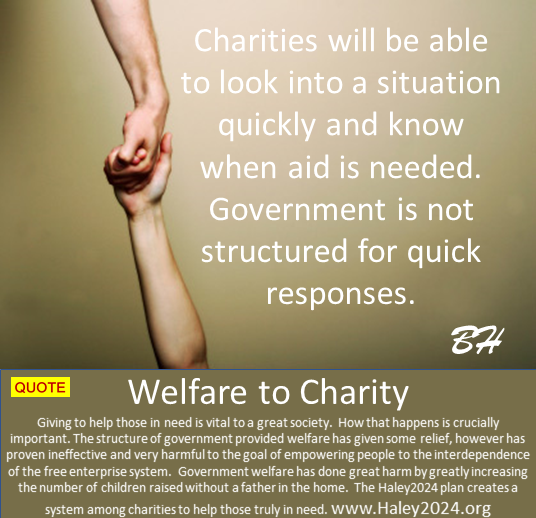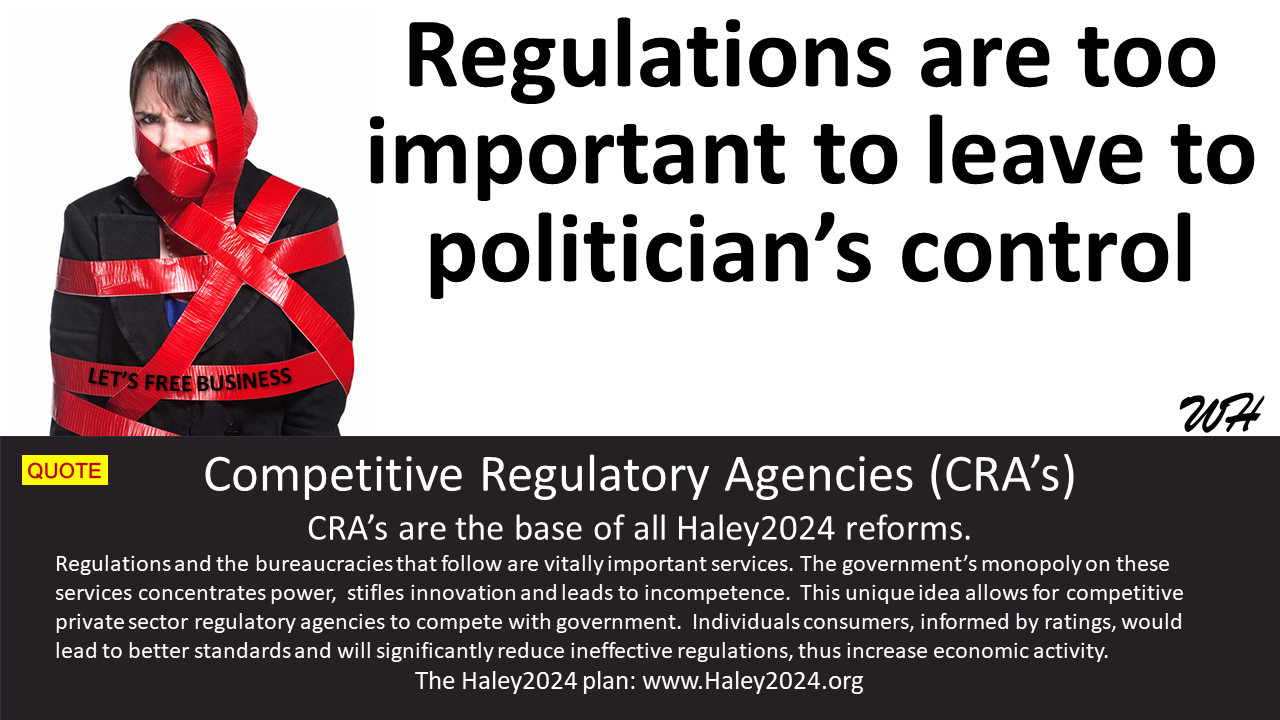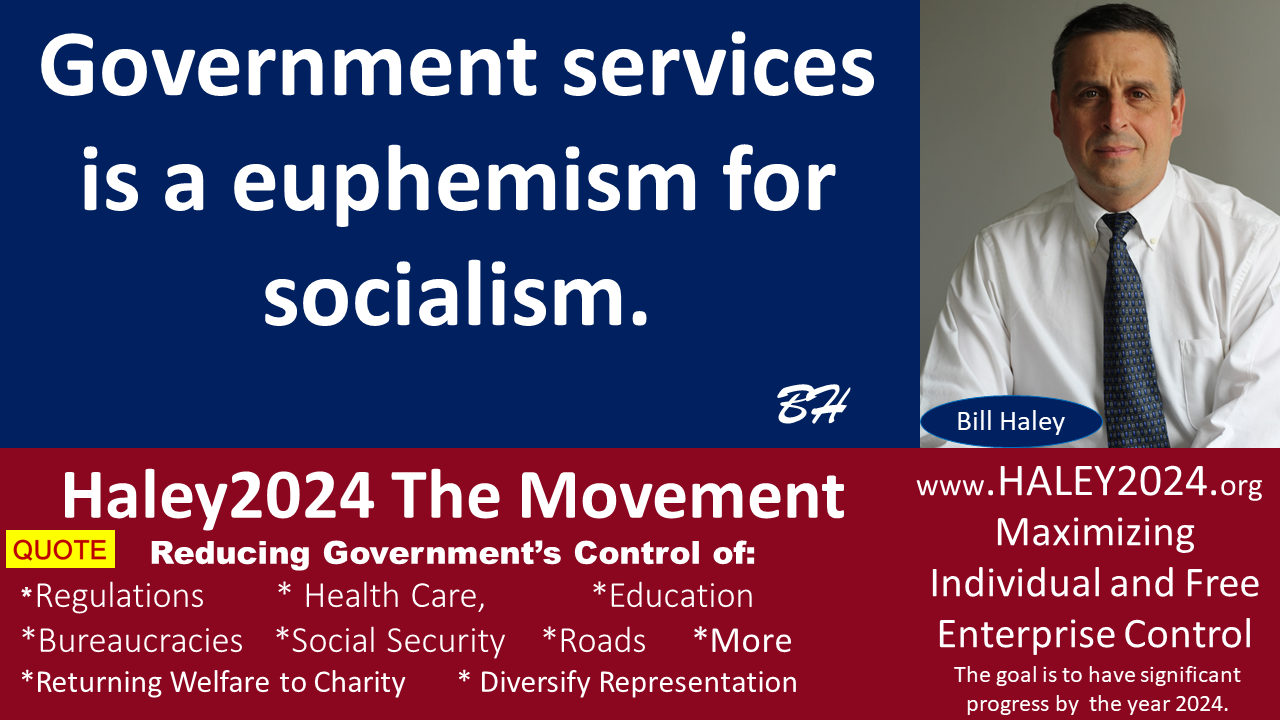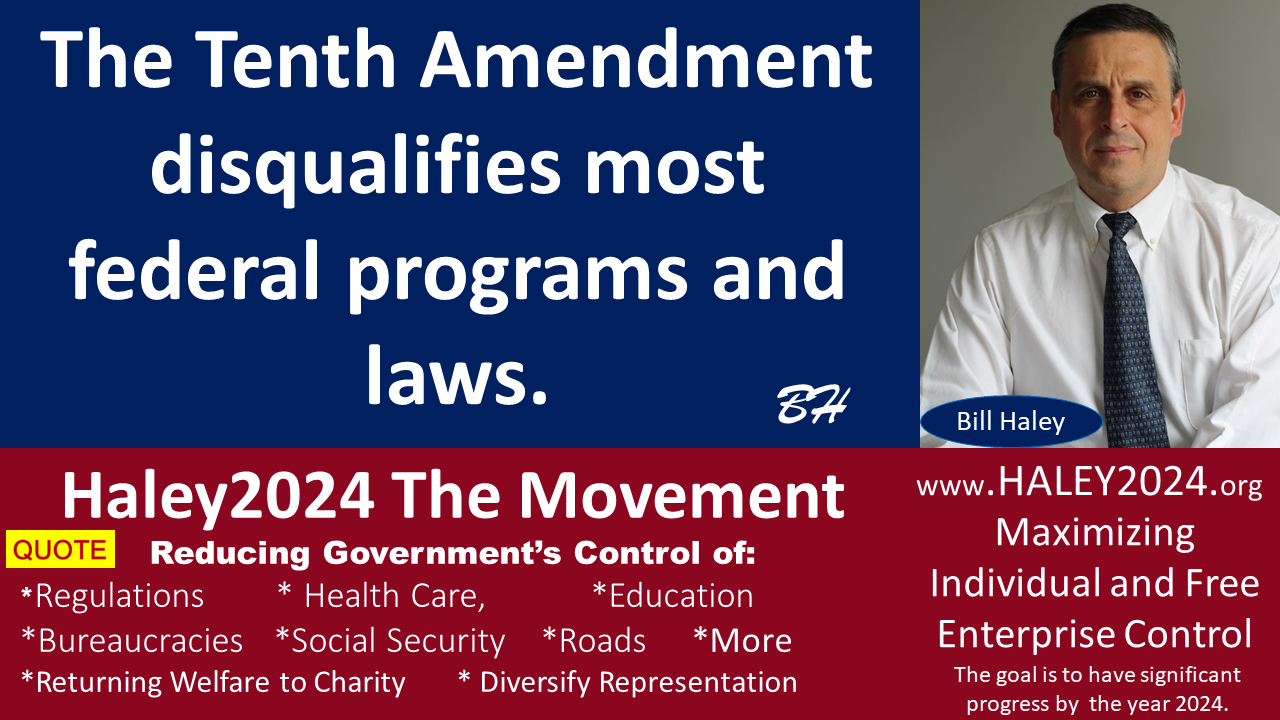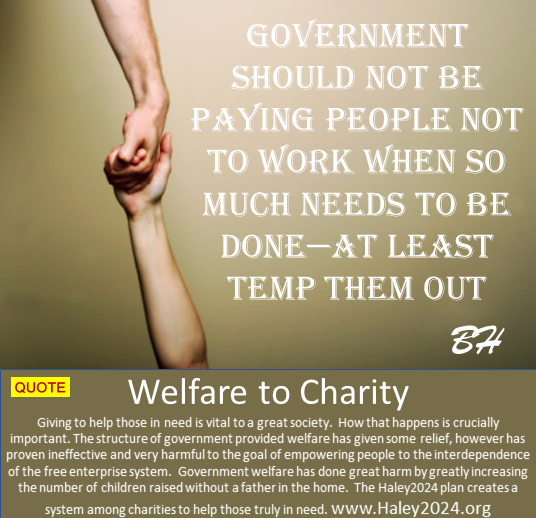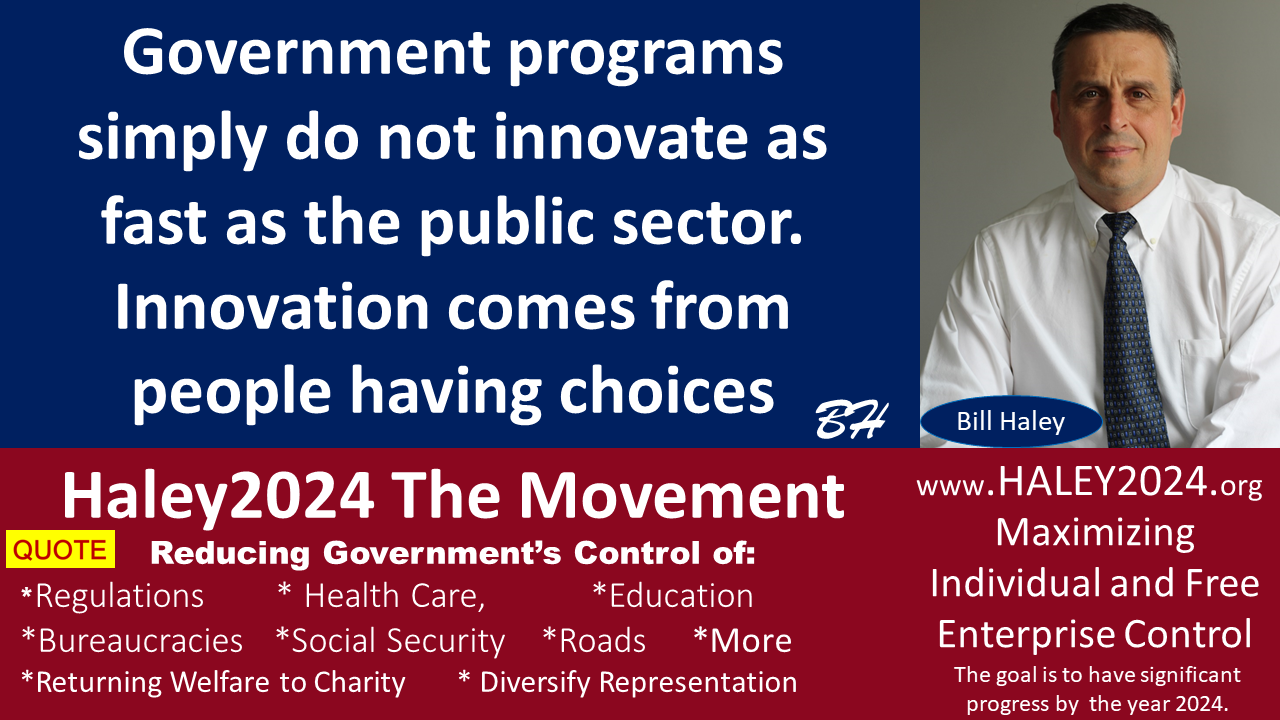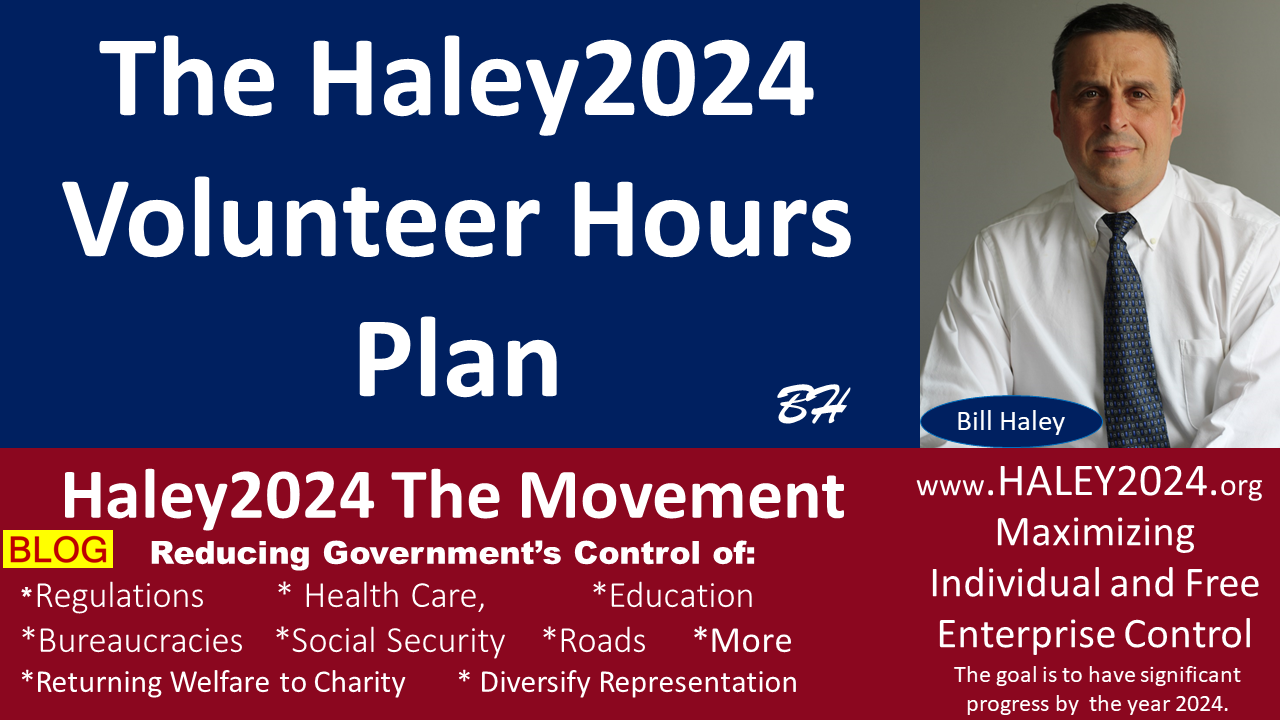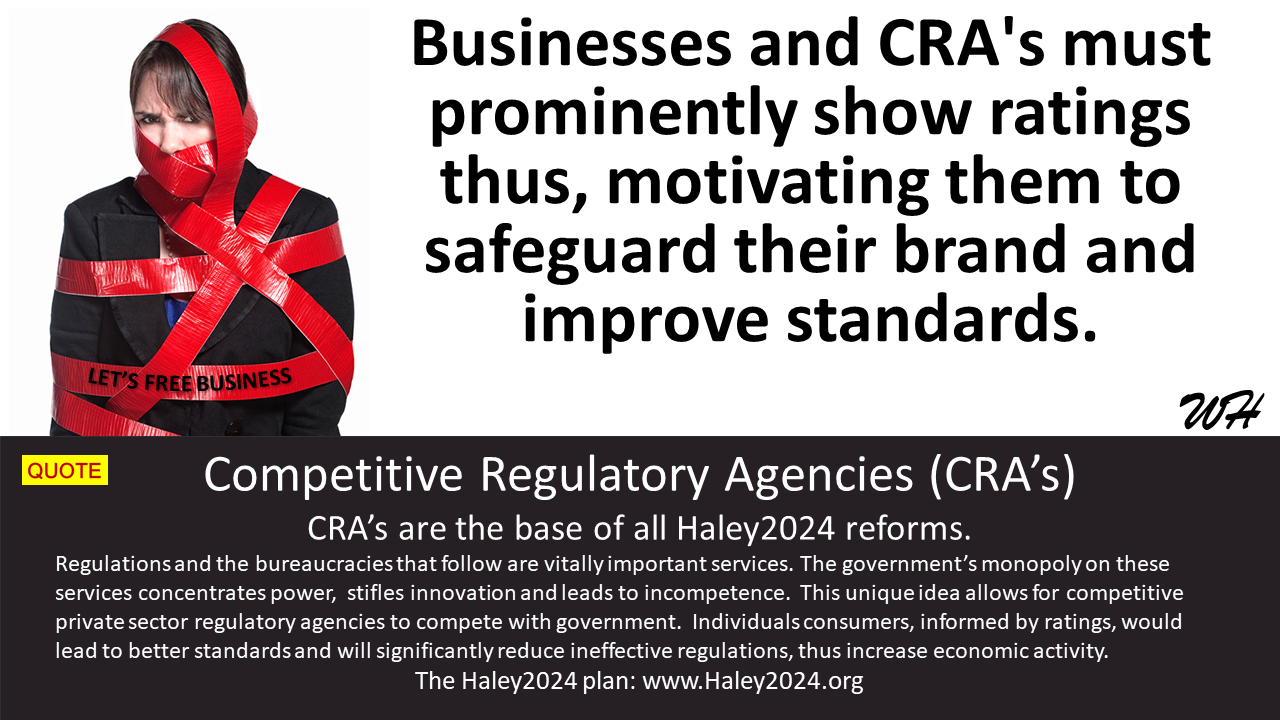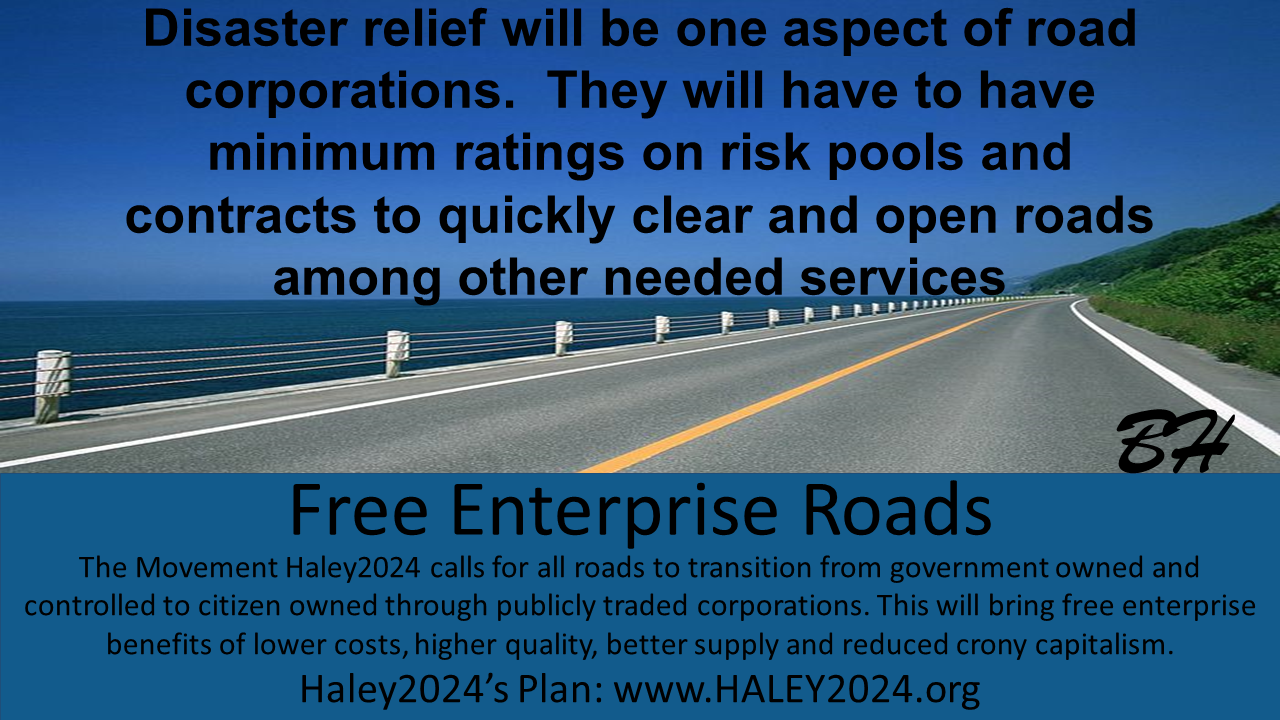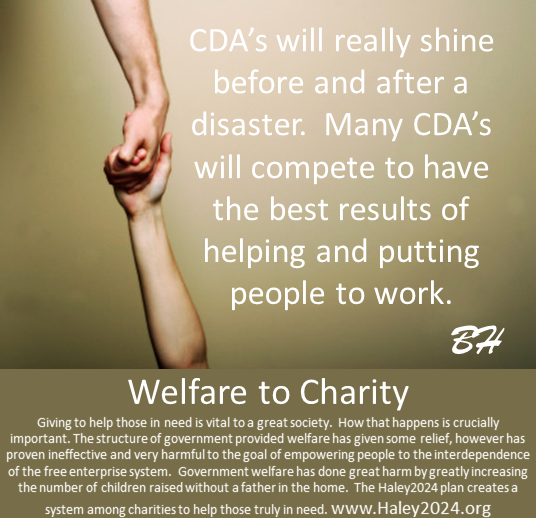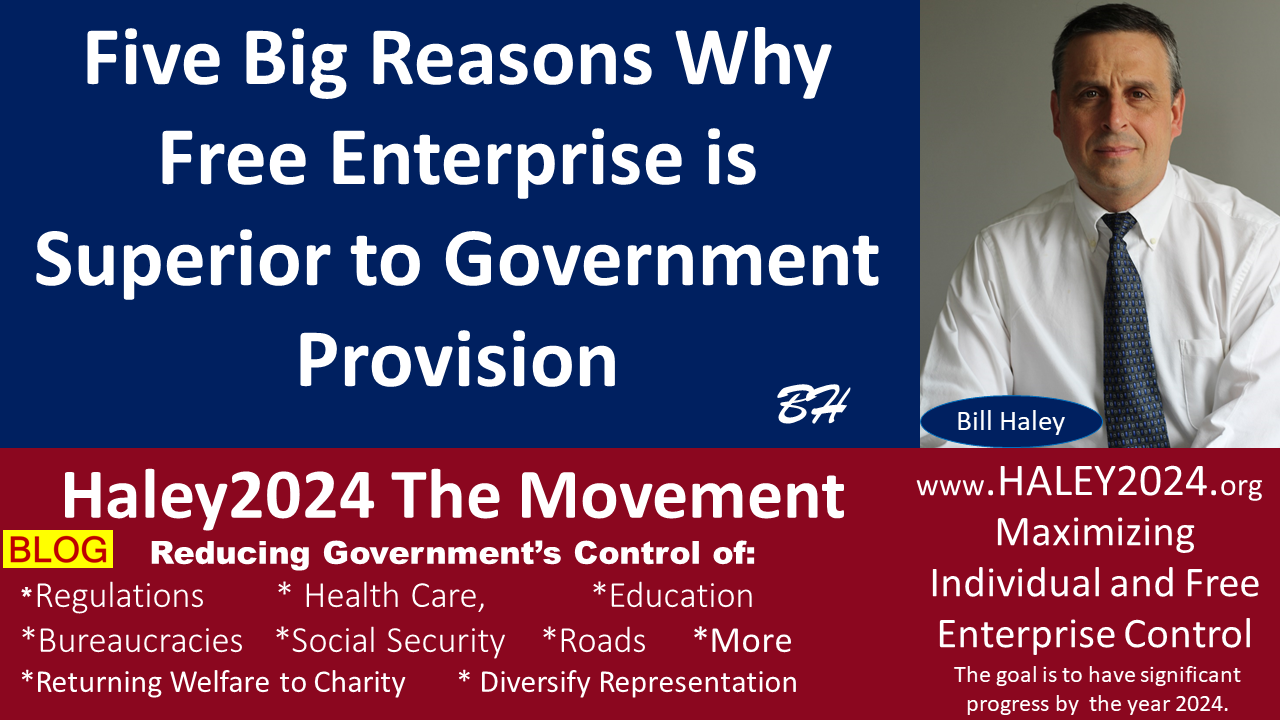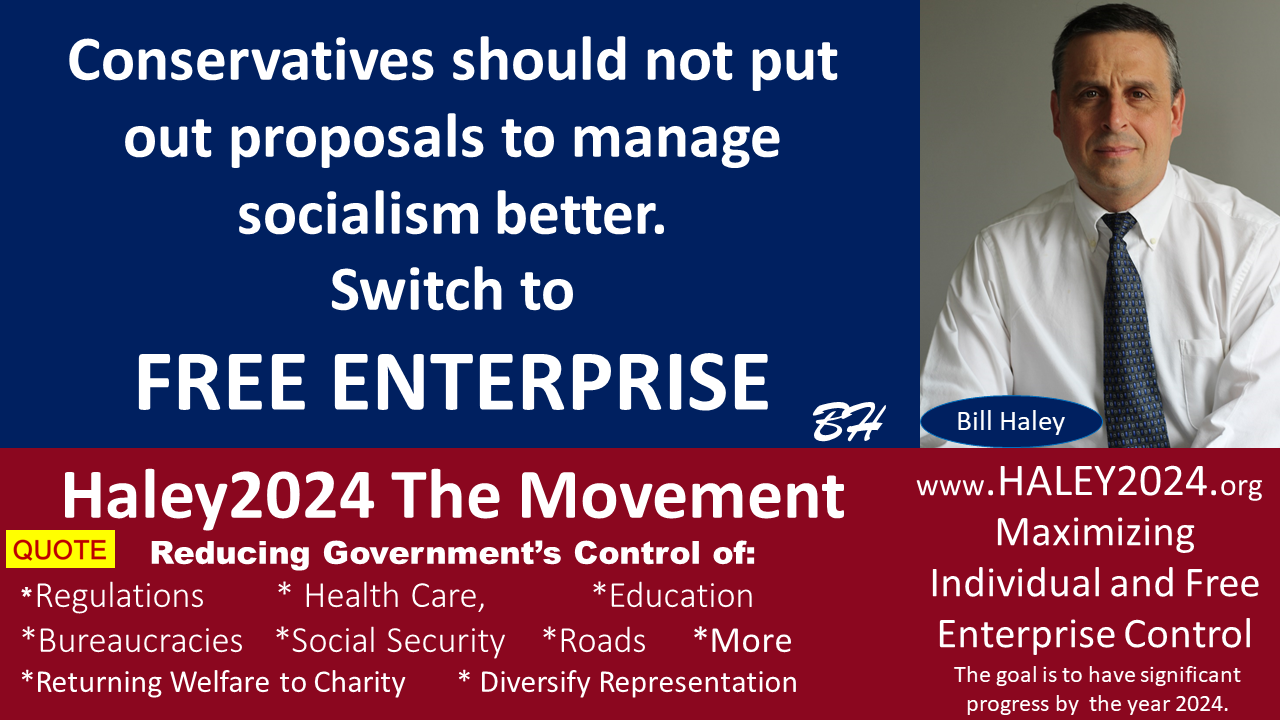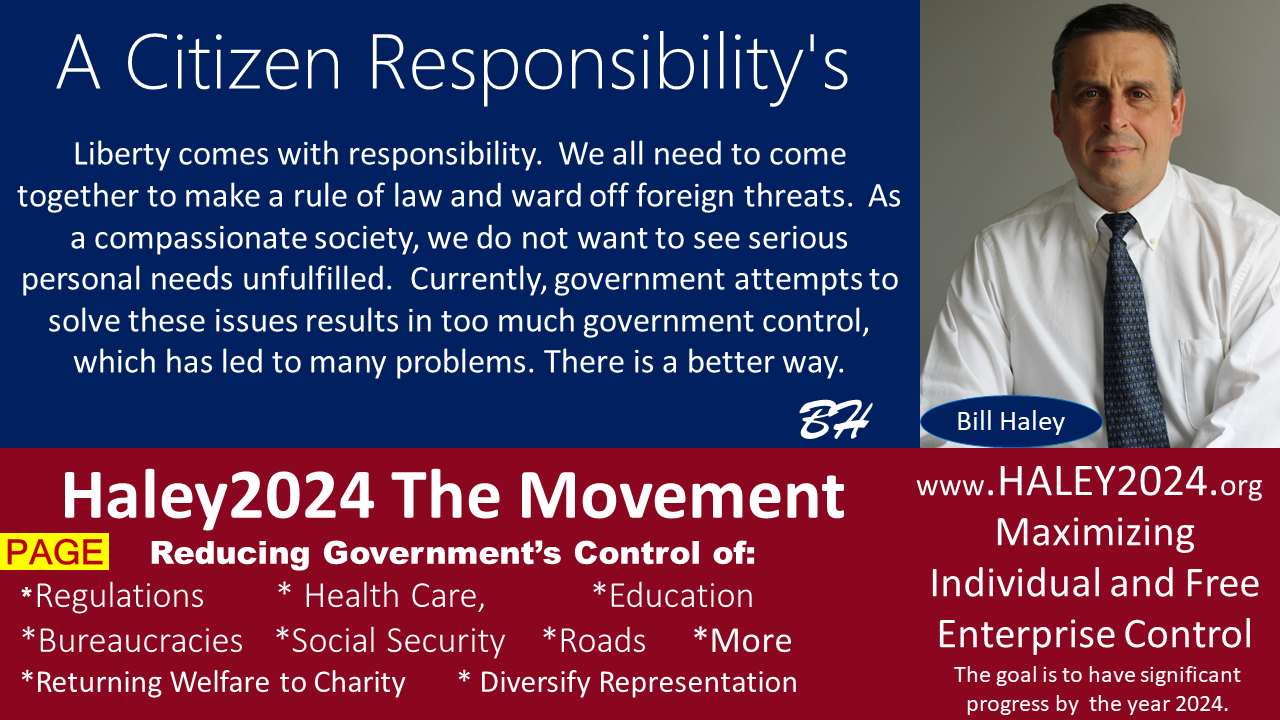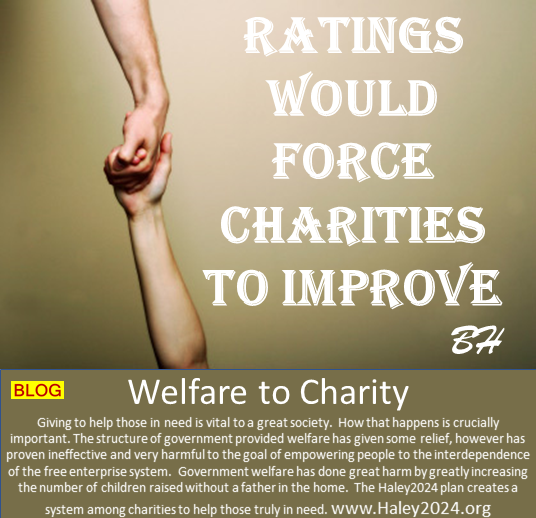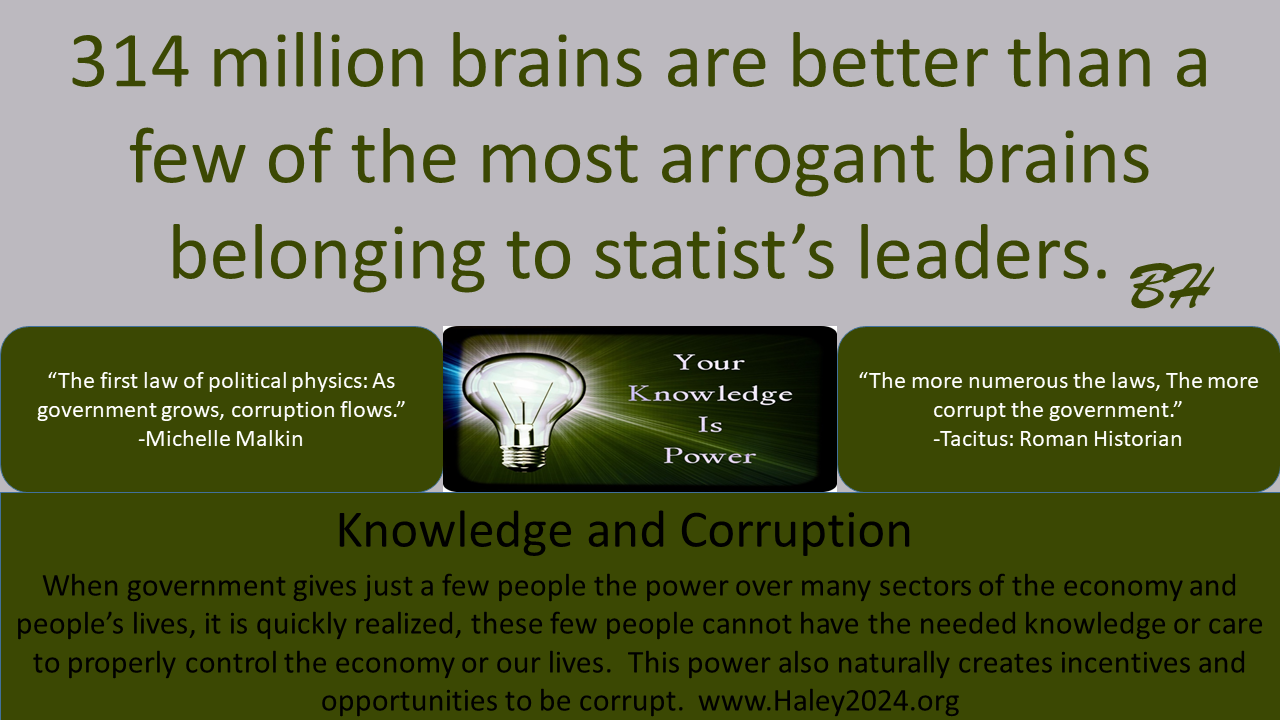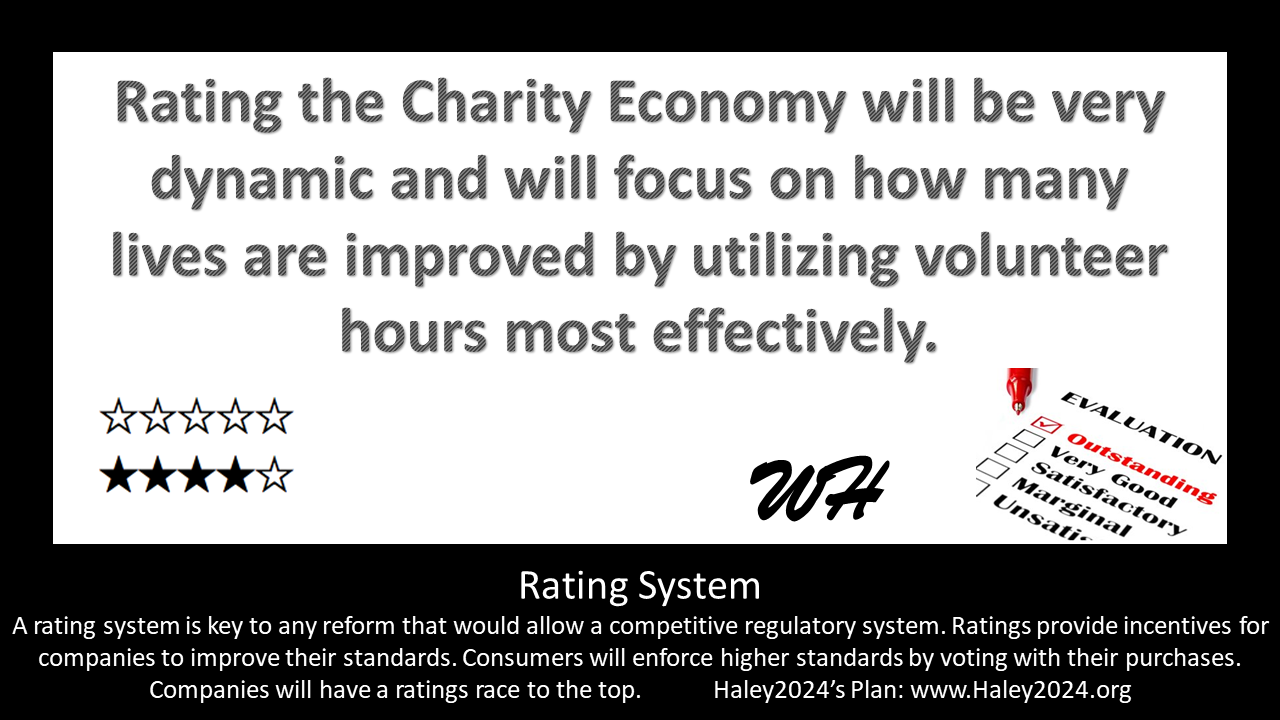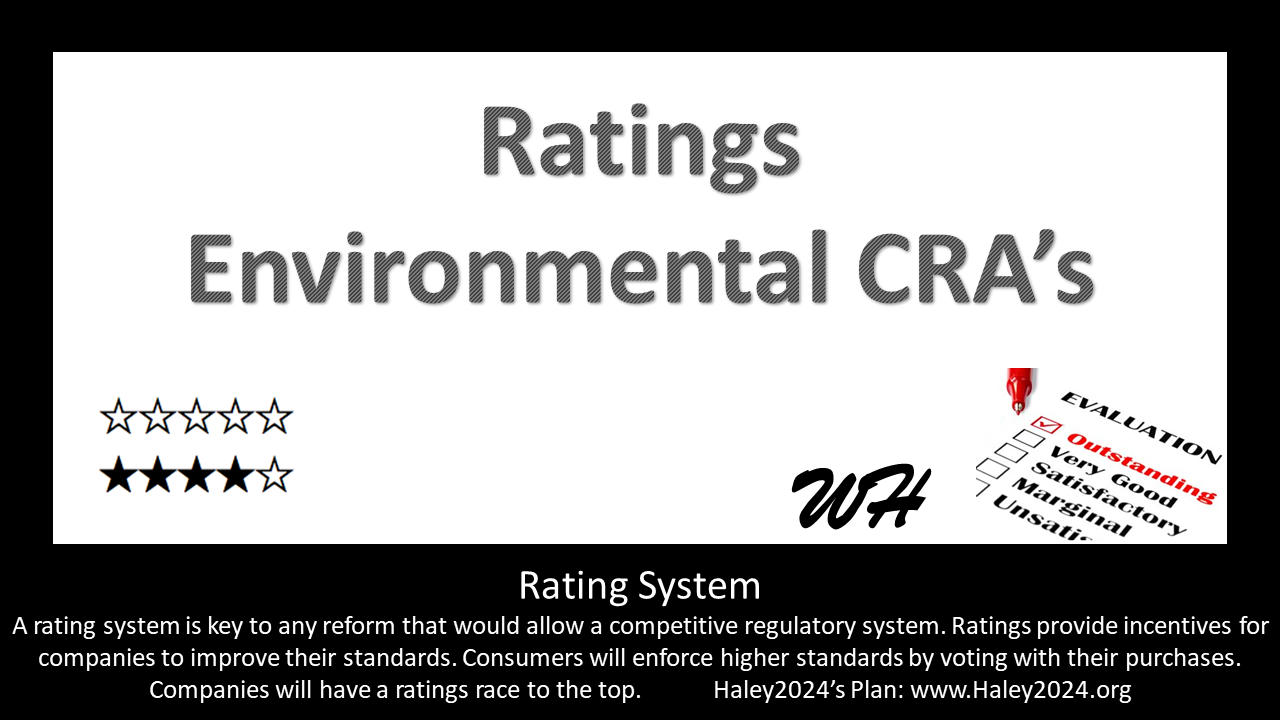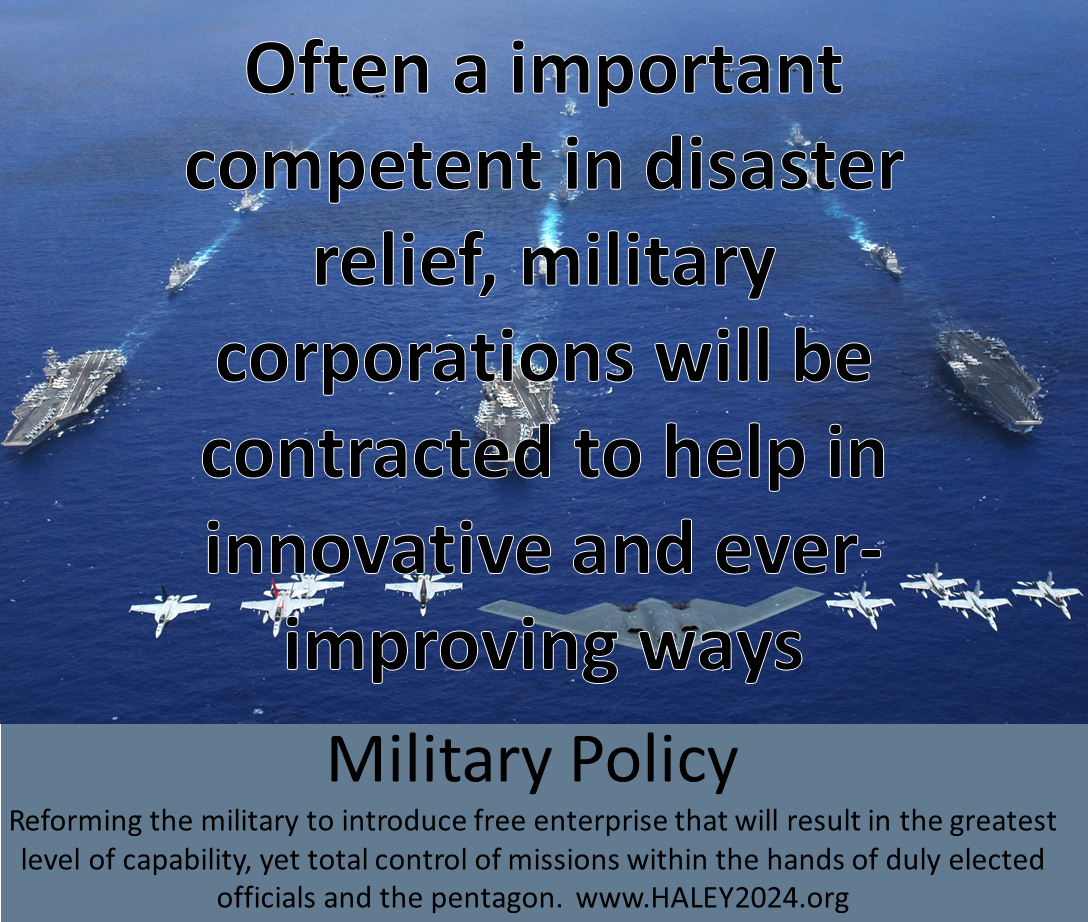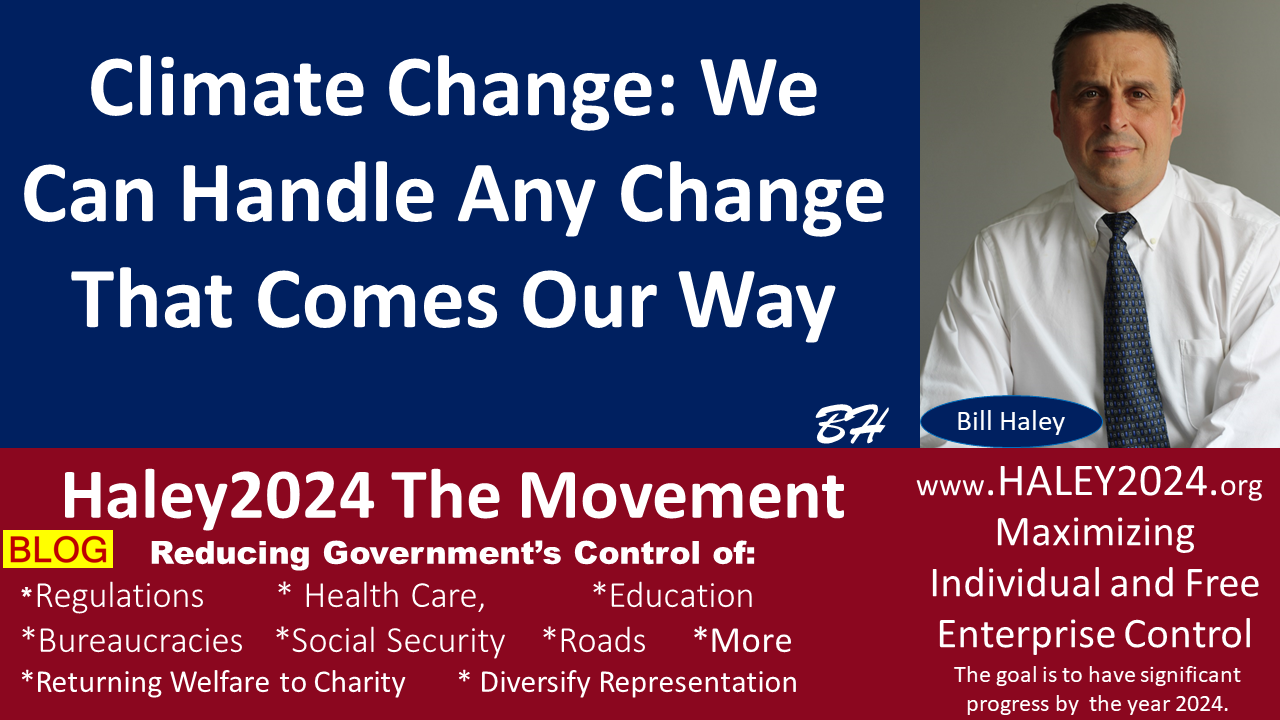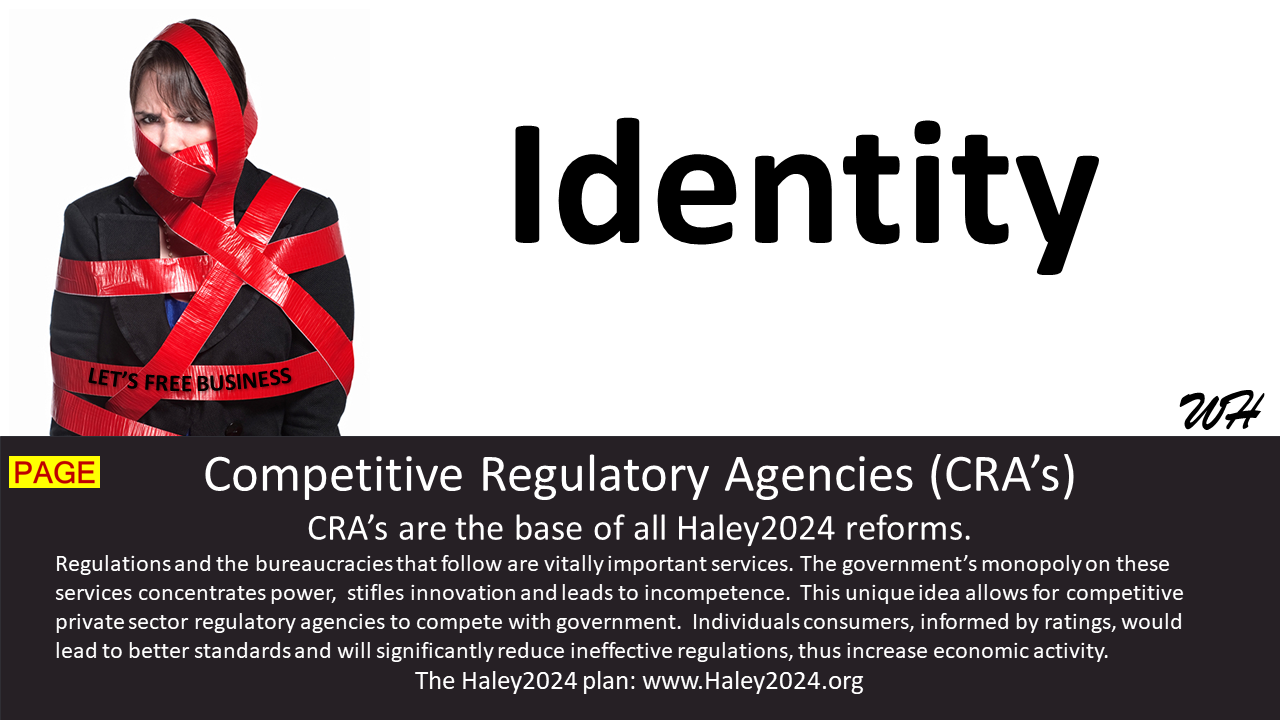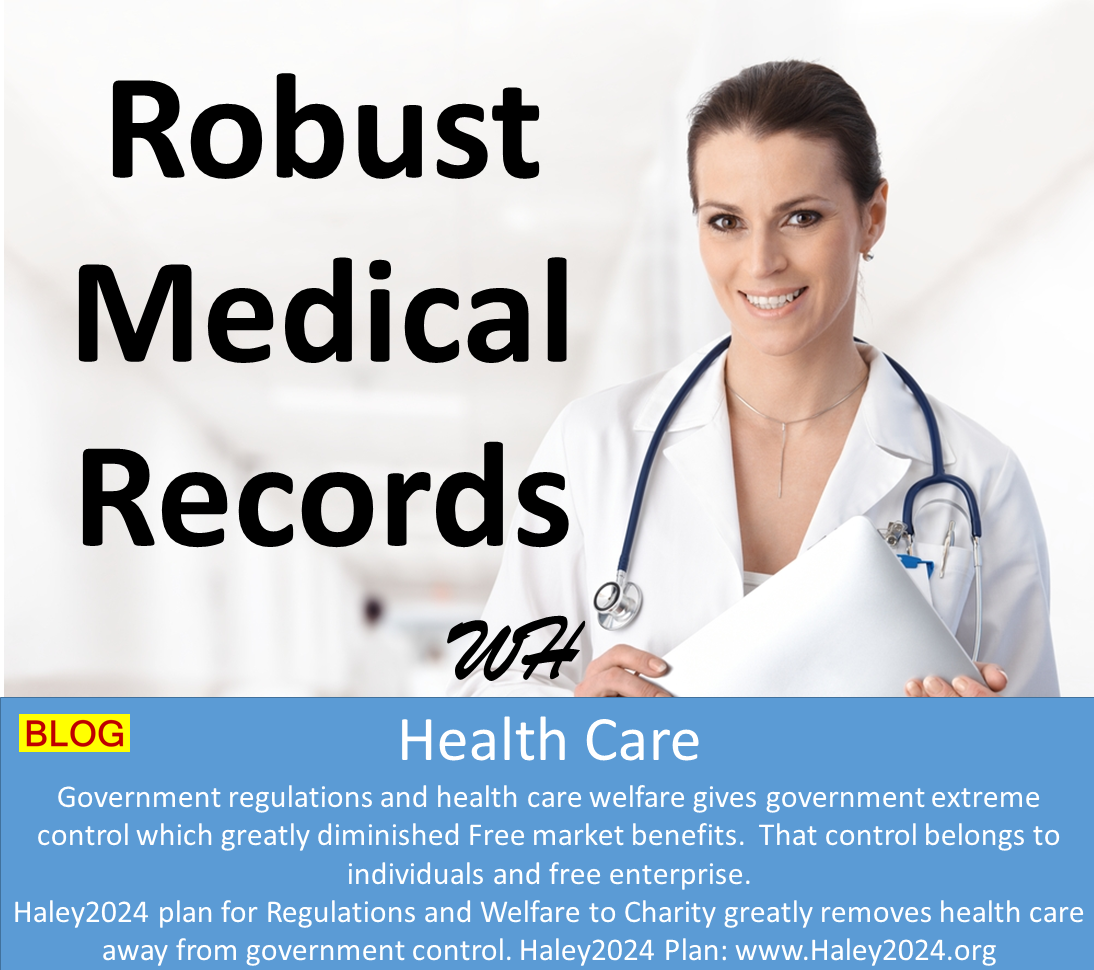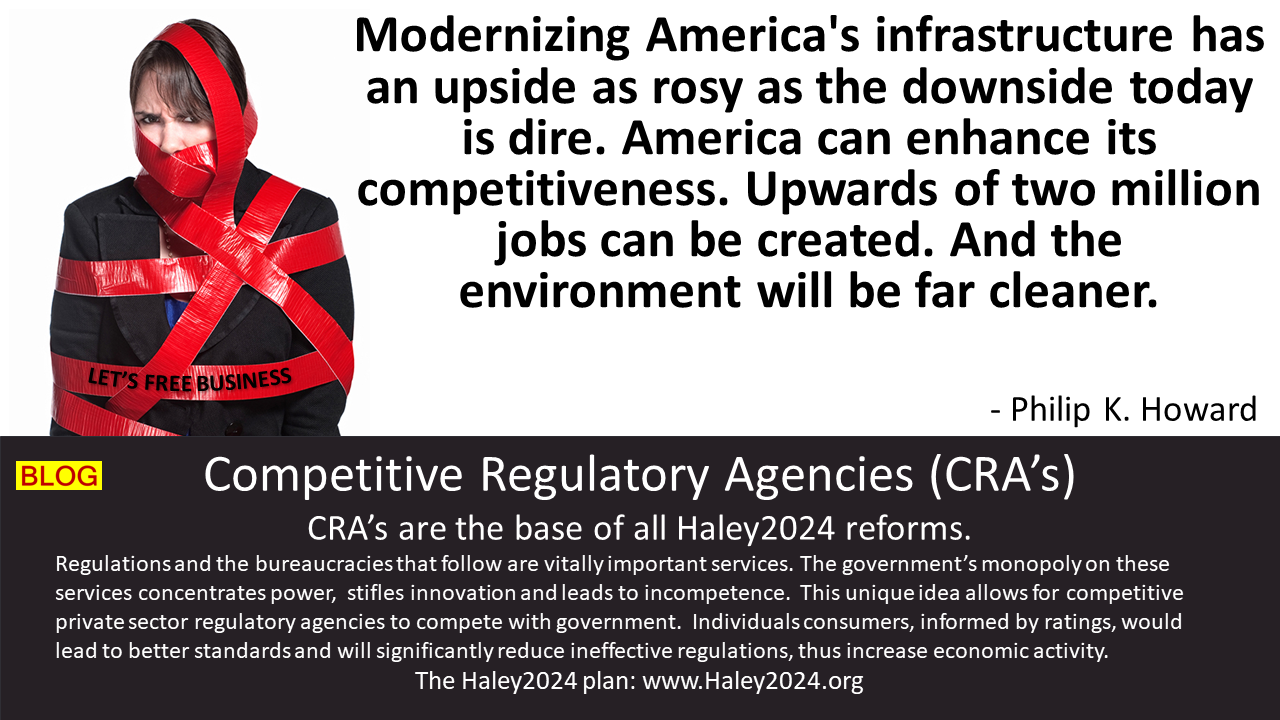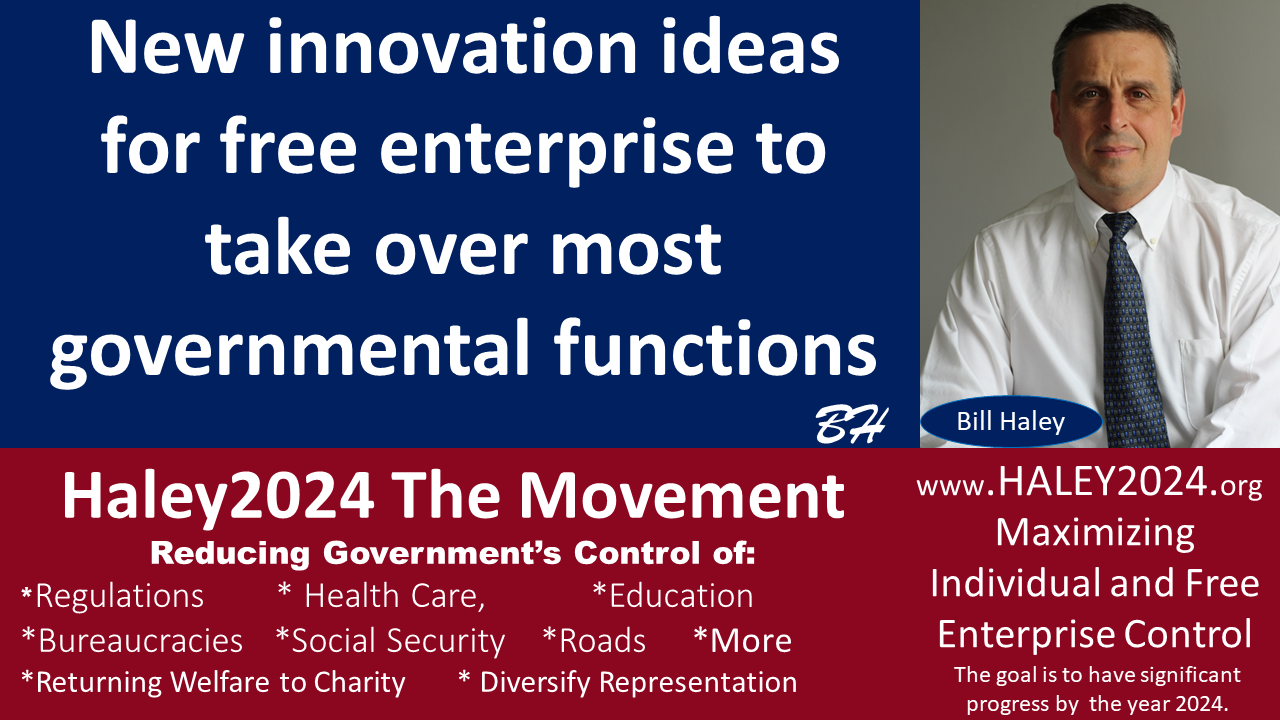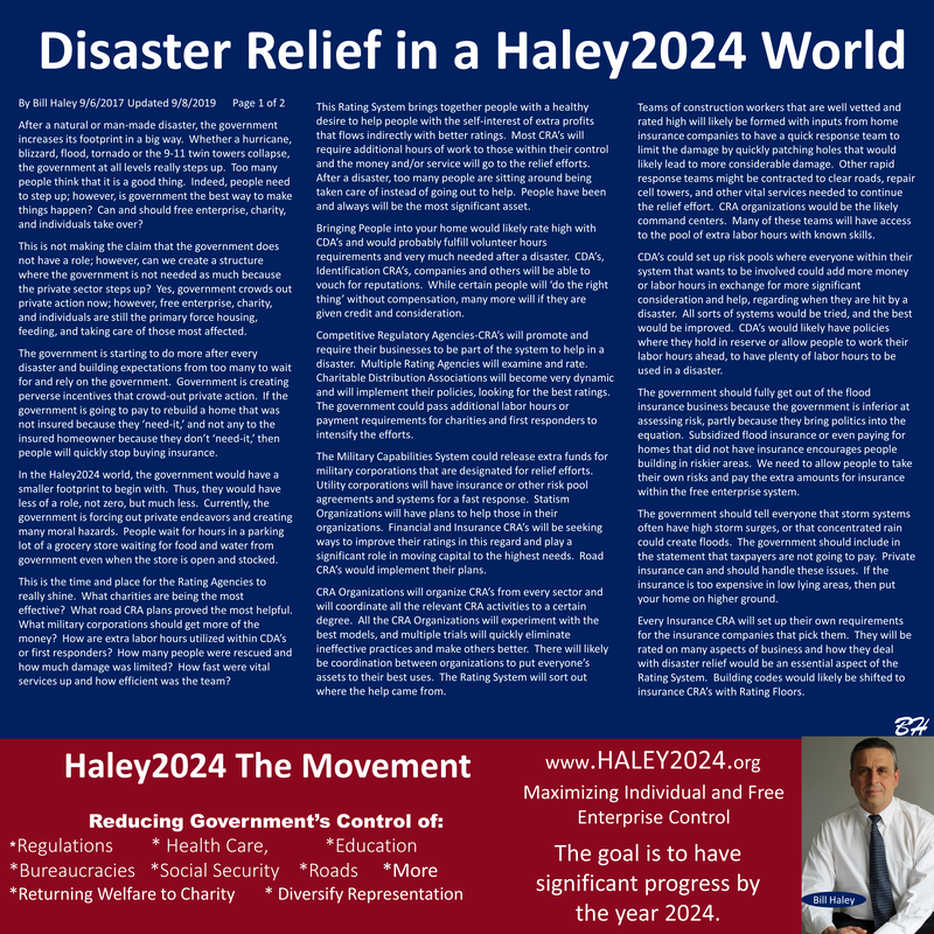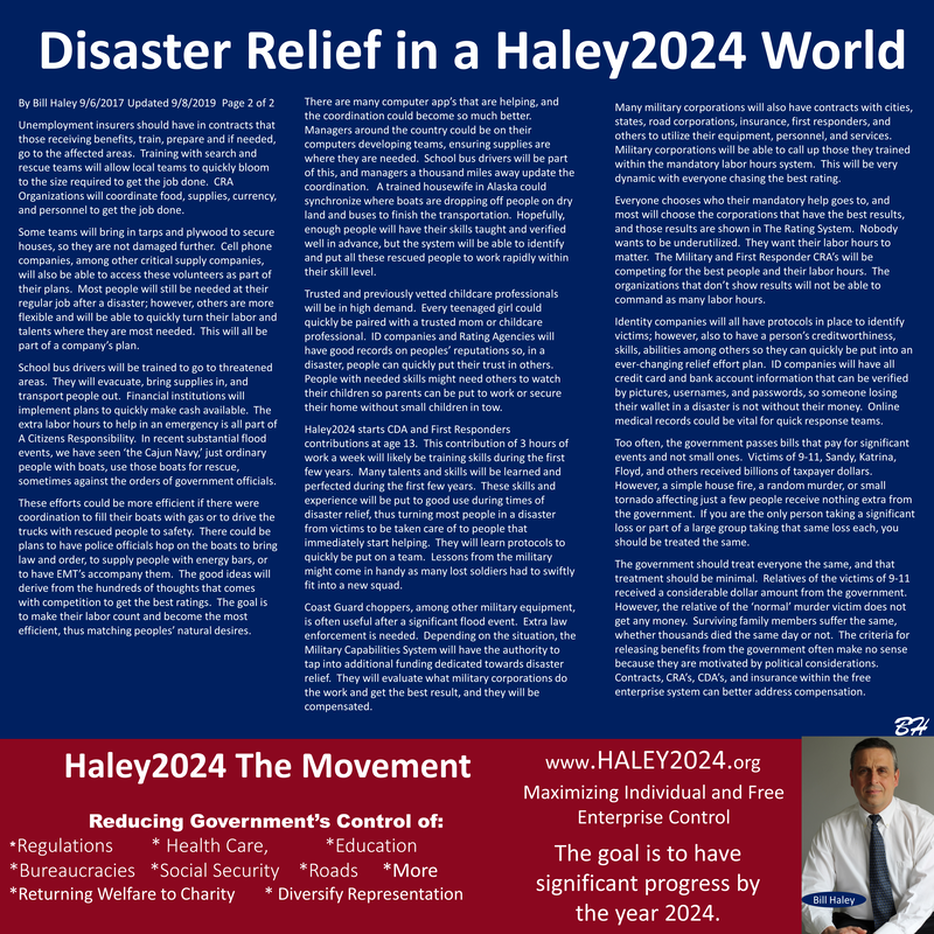| After a natural or man-made disaster, the government increases its footprint in a big way. Whether a hurricane, blizzard, flood, tornado or the 9-11 twin towers collapse, the government at all levels really steps up. Too many people think that it is a good thing. Indeed, people need to step up; however, is government the best way to make things happen? Can and should free enterprise, charity, and individuals take over? |
| This is not making the claim that the government does not have a role; however, can we create a structure where the government is not needed as much because the private sector steps up? Yes, government crowds out private action now; however, free enterprise, charity, and individuals are still the primary force housing, feeding, and taking care of those most affected. |
| The government is starting to do more after every disaster and building expectations from too many to wait for and rely on the government. Government is creating perverse incentives that crowd-out private action. If the government is going to pay to rebuild a home that was not insured because they ‘need-it,’ and not any to the insured homeowner because they don’t ‘need-it,’ then people will quickly stop buying insurance. |
| In the Haley2024 world, the government would have a smaller footprint to begin with. Thus, they would have less of a role, not zero, but much less. Currently, the government is forcing out private endeavors and creating many moral hazards. People wait for hours in a parking lot of a grocery store waiting for food and water from government even when the store is open and stocked. |
| This is the time and place for the Rating Agencies to really shine. What charities are being the most effective? What road CRA plans proved the most helpful. What military corporations should get more of the money? How are extra labor hours utilized within CDA’s or first responders? How many people were rescued and how much damage was limited? How fast were vital services up and how efficient was the team? |
| This Rating System brings together people with a healthy desire to help people with the self-interest of extra profits that flows indirectly with better ratings. Most CRA’s will require additional hours of work to those within their control and the money and/or service will go to the relief efforts. After a disaster, too many people are sitting around being taken care of instead of going out to help. People have been and always will be the most significant asset. |
| Bringing People into your home would likely rate high with CDA’s and would probably fulfill volunteer hours requirements and very much needed after a disaster. CDA’s, Identification CRA’s, companies and others will be able to vouch for reputations. While certain people will ‘do the right thing’ without compensation, many more will if they are given credit and consideration. |
| Competitive Regulatory Agencies-CRA’s will promote and require their businesses to be part of the system to help in a disaster. Multiple Rating Agencies will examine and rate. Charitable Distribution Associations will become very dynamic and will implement their policies, looking for the best ratings. The government could pass additional labor hours or payment requirements for charities and first responders to intensify the efforts. |
| The Military Capabilities System could release extra funds for military corporations that are designated for relief efforts. Utility corporations will have insurance or other risk pool agreements and systems for a fast response. Statism Organizations will have plans to help those in their organizations. Financial and Insurance CRA’s will be seeking ways to improve their ratings in this regard and play a significant role in moving capital to the highest needs. Road CRA’s would implement their plans. |
| CRA Organizations will organize CRA’s from every sector and will coordinate all the relevant CRA activities to a certain degree. All the CRA Organizations will experiment with the best models, and multiple trials will quickly eliminate ineffective practices and make others better. There will likely be coordination between organizations to put everyone’s assets to their best uses. The Rating System will sort out where the help came from. |
| Teams of construction workers that are well vetted and rated high will likely be formed with inputs from home insurance companies to have a quick response team to limit the damage by quickly patching holes that would likely lead to more considerable damage. Other rapid response teams might be contracted to clear roads, repair cell towers, and other vital services needed to continue the relief effort. CRA organizations would be the likely command centers. Many of these teams will have access to the pool of extra labor hours with known skills. |
| CDA’s could set up risk pools where everyone within their system that wants to be involved could add more money or labor hours in exchange for more significant consideration and help, regarding when they are hit by a disaster. All sorts of systems would be tried, and the best would be improved. CDA’s would likely have policies where they hold in reserve or allow people to work their labor hours ahead, to have plenty of labor hours to be used in a disaster. |
| The government should fully get out of the flood insurance business because the government is inferior at assessing risk, partly because they bring politics into the equation. Subsidized flood insurance or even paying for homes that did not have insurance encourages people building in riskier areas. We need to allow people to take their own risks and pay the extra amounts for insurance within the free enterprise system. |
| The government should tell everyone that storm systems often have high storm surges, or that concentrated rain could create floods. The government should include in the statement that taxpayers are not going to pay. Private insurance can and should handle these issues. If the insurance is too expensive in low lying areas, then put your home on higher ground. |
| Every Insurance CRA will set up their own requirements for the insurance companies that pick them. They will be rated on many aspects of business and how they deal with disaster relief would be an essential aspect of the Rating System. Building codes would likely be shifted to insurance CRA’s with Rating Floors. |
| Unemployment insurers should have in contracts that those receiving benefits, train, prepare and if needed, go to the affected areas. Training with search and rescue teams will allow local teams to quickly bloom to the size required to get the job done. CRA Organizations will coordinate food, supplies, currency, and personnel to get the job done. |
| Some teams will bring in tarps and plywood to secure houses, so they are not damaged further. Cell phone companies, among other critical supply companies, will also be able to access these volunteers as part of their plans. Most people will still be needed at their regular job after a disaster; however, others are more flexible and will be able to quickly turn their labor and talents where they are most needed. This will all be part of a company’s plan. |
| School bus drivers will be trained to go to threatened areas. They will evacuate, bring supplies in, and transport people out. Financial institutions will implement plans to quickly make cash available. The extra labor hours to help in an emergency is all part of A Citizens Responsibility. In recent substantial flood events, we have seen ‘the Cajun Navy,’ just ordinary people with boats, use those boats for rescue, sometimes against the orders of government officials. |
| These efforts could be more efficient if there were coordination to fill their boats with gas or to drive the trucks with rescued people to safety. There could be plans to have police officials hop on the boats to bring law and order, to supply people with energy bars, or to have EMT’s accompany them. The good ideas will derive from the hundreds of thoughts that comes with competition to get the best ratings. The goal is to make their labor count and become the most efficient, thus matching peoples’ natural desires. |
| There are many computer app’s that are helping, and the coordination could become so much better. Managers around the country could be on their computers developing teams, ensuring supplies are where they are needed. School bus drivers will be part of this, and managers a thousand miles away update the coordination. A trained housewife in Alaska could synchronize where boats are dropping off people on dry land and buses to finish the transportation. Hopefully, enough people will have their skills taught and verified well in advance, but the system will be able to identify and put all these rescued people to work rapidly within their skill level. |
| Trusted and previously vetted childcare professionals will be in high demand. Every teenaged girl could quickly be paired with a trusted mom or childcare professional. ID companies and Rating Agencies will have good records on peoples’ reputations so, in a disaster, people can quickly put their trust in others. People with needed skills might need others to watch their children so parents can be put to work or secure their home without small children in tow. |
| Haley2024 starts CDA and First Responders contributions at age 13. This contribution of 3 hours of work a week will likely be training skills during the first few years. Many talents and skills will be learned and perfected during the first few years. These skills and experience will be put to good use during times of disaster relief, thus turning most people in a disaster from victims to be taken care of to people that immediately start helping. They will learn protocols to quickly be put on a team. Lessons from the military might come in handy as many lost soldiers had to swiftly fit into a new squad. |
| Coast Guard choppers, among other military equipment, is often useful after a significant flood event. Extra law enforcement is needed. Depending on the situation, the Military Capabilities System will have the authority to tap into additional funding dedicated towards disaster relief. They will evaluate what military corporations do the work and get the best result, and they will be compensated. |
| Many military corporations will also have contracts with cities, states, rMany military corporations will also have contracts with cities, states, road corporations, insurance, first responders, and others to utilize their equipment, personnel, and services. Military corporations will be able to call up those they trained within the mandatory labor hours system. This will be very dynamic with everyone chasing the best rating. oad corporations, insurance, first responders, and others to utilize their equipment, personnel, and services. Military corporations will be able to call up those they trained within the mandatory labor hours system. This will be very dynamic with everyone chasing the best rating. |
| Everyone chooses who their mandatory help goes to, and most will choose the corporations that have the best results, and those results are shown in The Rating System. Nobody wants to be underutilized. They want their labor hours to matter. The Military and First Responder CRA’s will be competing for the best people and their labor hours. The organizations that don’t show results will not be able to command as many labor hours. |
| Identity companies will all have protocols in place to identify victims; however, also to have a person’s creditworthiness, skills, abilities among others so they can quickly be put into an ever-changing relief effort plan. ID companies will have all credit card and bank account information that can be verified by pictures, usernames, and passwords, so someone losing their wallet in a disaster is not without their money. Online medical records could be vital for quick response teams. |
| Too often, the government passes bills that pay for significant events and not small ones. Victims of 9-11, Sandy, Katrina, Floyd, and others received billions of taxpayer dollars. However, a simple house fire, a random murder, or small tornado affecting just a few people receive nothing extra from the government. If you are the only person taking a significant loss or part of a large group taking that same loss each, you should be treated the same. |
| The government should treat everyone the same, and that treatment should be minimal. Relatives of the victims of 9-11 received a considerable dollar amount from the government. However, the relative of the ‘normal’ murder victim does not get any money. Surviving family members suffer the same, whether thousands died the same day or not. The criteria for releasing benefits from the government often make no sense because they are motivated by political considerations. Contracts, CRA’s, CDA’s, and insurance within the free enterprise system can better address compensation. |

